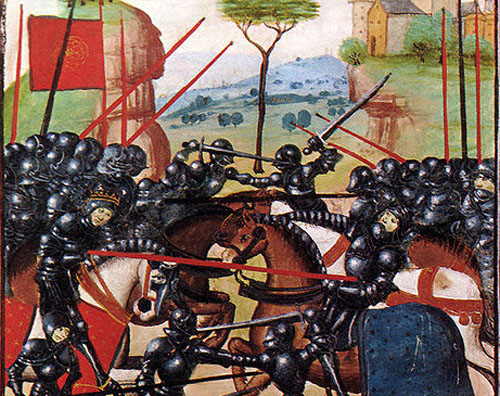Polychronicon 148: The Wars of the Roses
Teaching History feature

Uncivil Wars? Interpreting the Wars of the Roses
There are few periods in our history from which we turn with such weariness and disgust as from the Wars of the Roses. Their savage battles, their ruthless executions, their shameless treasons seem all the more terrible from the pure selfishness of the ends for which men fought, the utter want of all nobleness and chivalry in the struggle itself, of all great result in its close.
In these words, J. R. Green summed up the Victorian view of the civil wars that broke out in the 1450s and flared up again at various points over the next three decades. For Whig historians, concerned to explain the national progress towards parliamentary-limited monarchy, this apparently baronial conflict had nothing to recommend it: the ‘bastard feudalism' that enabled magnates bent on sedition to wreck the realm and finally to destroy themselves, thus opening the way to ‘Tudor despotism', was just the last decadent paroxysm of what Bishop Stubbs called ‘this age of obscurity and disturbance'.
Shorn of its disappointed tones, Green's view of the wars may not be very far from modern public understanding...
This resource is FREE for Secondary HA Members.
Non HA Members can get instant access for £2.75

